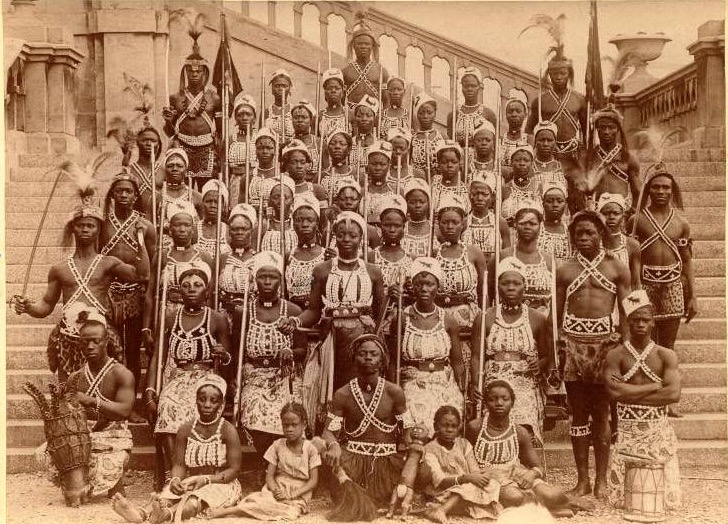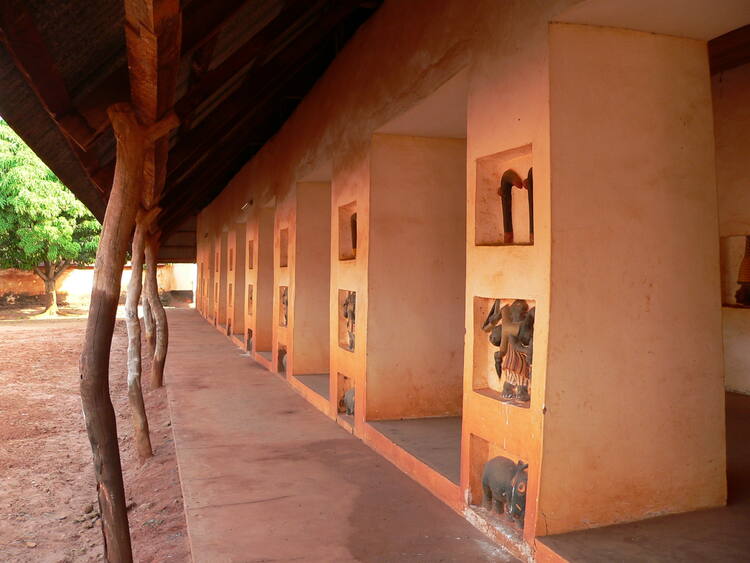Located in what is now southern Benin, the Dahomey Kingdom was a powerful regional state that controlled large areas and several tribes in pre-colonial West Africa around the 18th and 19th centuries like the Oyo Empire, the Songhai Empire, and the Mali Empire.
At the height of its powers, Dahomey had a large army including the powerful Dahomey Amazons – an all-female military unit that terrorized the enemy.
Built on conquest and slave labour, the Kingdom also had significant international trade with Europeans, a robust economy and a highly organised political system.

In spite of all these, it succumbed to the superior weapons of the French colonial empire in 1894 but not without the heroic resistance demonstrated by the last king of Dahomey – King Behanzin.
Behanzin, who had succeeded the throne in 1889, realized that the Europeans were gradually encroaching on his kingdom, and he sought ways to isolate them. He resisted the French claim to Cotonou, provoking the French invasion and eventual conquest of Dahomey in 1892–94.

Before the conquest, decisive battles were fought at Dogba, Poguessa, and Oueme Valley and Behanzin fought so courageously until he submitted to the superior weaponry of France in 1894.
He was defeated by Colonel Alfred Amedee Dodds, a Senegalese mulatto who led the expedition against Behanzin’s Dahomey. Behanzin lived out the remainder of his life in exile in Martinique and Algeria.
But there was a problem. Even though the French attained the surrender of Behanzin in 1894, they did not procure Behanzin’s signature of national surrender or treaty.
Thus, following Behanzin’s exile, the French general, Alfred Dodds, was willing to offer the throne to every one of the immediate royals in return for a signature to legalise the establishment of a French protectorate over the Kingdom.

All the Royals, however, refused except Agoli-Agbo, who was Behanzin’s Army Chief of Staff and relative. According to accounts, he agreed to sign the treaty, but instead of being appointed to the throne as the head of a sovereign nation, the French made him a “traditional chief.”
Considered to have been the twelfth, and last, ‘King’ of Dahomey, Agoli-Agbo ruled for six years (1894-1900) and was assisted by a French Viceroy. Meanwhile, the French were preparing for direct administration and they succeeded on February 12, 1900. Agoli-Agbo went into exile in Gabon and the Save
In present-day Benin, French colonial rule and the country’s ultimate close ties with France have left a deep impact on all aspects of cultural life, especially among the educated segments of the population and in the southern cities, writes Encyclopaedia Britannica.

Currently, modern-day kings of Dahomey have no powers under Benin’s constitution, on the other hand, they retain much political and economic influence.
Dahomey made headlines recently following the death and burial of traditional monarch, Dah Dedjalagni Agoli-Agbo, in July 2018.

The monarch, who was a police officer by training and had 41 wives, was the latest in a long line of monarchs to the throne of Dahomey. He ascended the throne in 1989 but this was disputed until he was fully recognized in 2010, AFP reported.
According to UNESCO, under the twelve kings who succeeded from 1625 to 1900, the kingdom established itself as “one of the most powerful of the western coast of Africa.”










